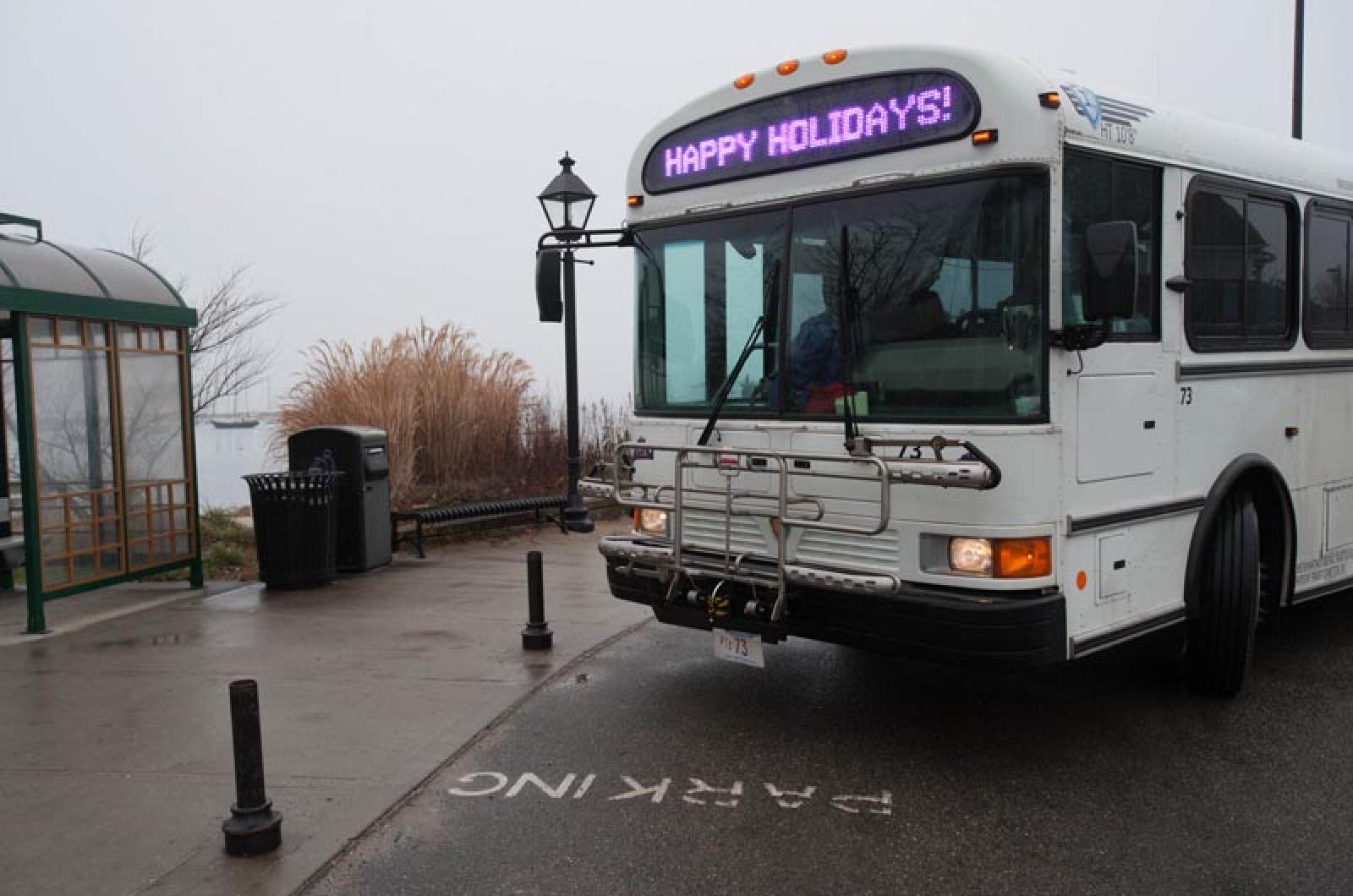Starting in the new year, the Vineyard Transit Authority will begin a phased plan to increase fares aboard its buses and vans.
Rising service costs have prompted modest increases to passenger fares, the last of which were approved last week by the VTA advisory board.
“The service demands are getting heavier and heavier, and the funding is not following the service demands,” said transit authority administrator Angela Grant.
Increases in each of the types of ridership passes, including multi-day, single-ride and annual passes, are planned over the next four years. Some take effect in January.
Two public hearings were held in late November, where riders declared themselves generally satisfied with the rate structure.
“People have found that the fares are very reasonable,” Ms. Grant said. “They understand that it is time for an increase.”
The cost of an annual pass will increase starting Jan. 1. Each year through 2018 the price will increase by $10.
Island students carrying an annual pass will pay $30 instead of $25 in 2014, and Island seniors will be charged $20 instead of $15. Each year following, another $5 will be added to the cost of each of the two discounted passes.
Three-day passes will increase from $15 to $18.
Other fare hikes will not go into effect until the following years.
Single-ride increases of 25 cents per town for all passengers will go into effect in January 2015. Starting the first of that month, for example, riders will be charged $2.50 to ride from Edgartown to Oak Bluffs. This trip currently costs $2.
The last time the fare increased for town-to-town rides was 2002.
Also in 2015, the cost to ride the Lift will go up $1 per zone, and the cost of a day pass will be $8 compared with the current $7. The cost to ride the one-way Medivan, a service that brings Islanders to Boston for medical appointments, will increase from $10 to $15.
Previous fare increases, approved in 2009 and 2010, included a jump in the day pass, and an increase in the local senior annual pass.
Ridership for fiscal year 2013, which closed June 30, fell two per cent compared with the previous year. Every month since, ridership has increased, but expenses have also increased.
“We need to close that gap because our state funding and local funding don’t increase in those proportions,” Ms. Grant said. Funding for the bus system is provided by local assessments, the state Department of Transportation and rural assistance from the federal government.
And while August this year saw the highest ridership ever recorded for that month, costs associated with the rerouting of buses during the presidential visit accounted for a majority of a $50,000 increase in the month’s expenses, Ms. Grant said. For nearly 10 days in August, South Road in Chilmark was closed to traffic between Meeting House Road and Wooton Bassett Road while President Obama stayed at a private home off South Road.
For more information on fares, go to the VTA website.







Comments
Comment policy »